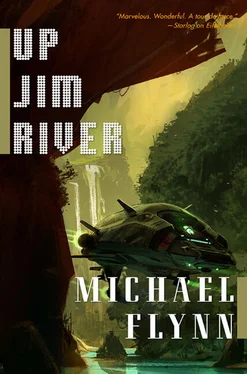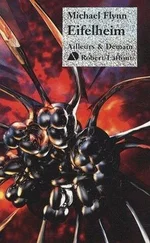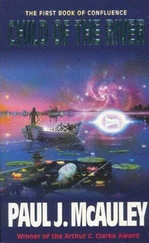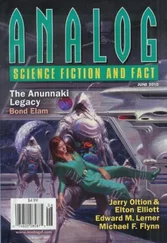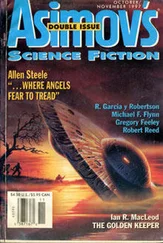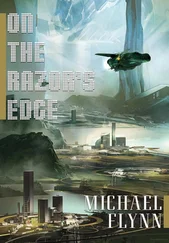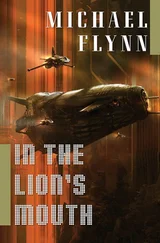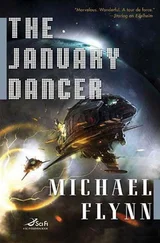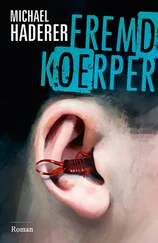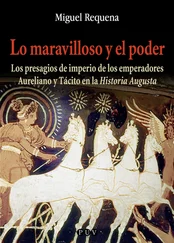A happy, laughing crowd met them and escorted them around the ring-village to the headman’s house. Along the way, they passed bronze statues, mostly of young women, but including also some young men and a few older men dressed like the bonze who had first greeted them. Donovan told them, after asking their escorts, that these were the nayanmars , the sixty-three saints of Žiba. The statues were beautifully done and many of them were adorned with floral wreaths around their necks or with bouquets and jar-candles and joss sticks at their feet. It is the festival of “Rupa Ðamupa,” they were told by those who kissed them as they passed.
That evening, at a banquet in their honor, they learned that the festival celebrated the coming of the god in two of his aspects: Vrabha the Creator and Žiba the Destroyer. The headman, who was also the hierophant for the entire Oorah tribe, sat them on great embroidered pillows and placed cones of incense before them and decked them with leis. Then he brought in troupes of naked dancing girls, between performances of which he explained the traditions of the Village People.
Eons ago, Vrabha the Creator placed the Oorah on the mesa to bring life to the world by preparing a place where the god might come: the Vagina of the Earth, although the pagans in the Lower Lands called it the Well at the End of the World.
“But it is not the End, but the Beginning,” he explained.
The speech had to run through Donovan’s ears and out his tongue, which made at times for slow-going. The ancient Tantamiž had changed in one way for these people and in another way for Donovan’s, and so they spoke in the dead tongue that was their common ancestor. Donovan felt exalted. He was, however inexpertly, speaking as the Vraddies of the old Commonwealth of Suns had spoken in the glory days of Terra. He was, in some manner, at one with them.
“But the god is three in one,” the old man explained. “He not only brings life, but he sustains it, and destroys it, and thus brings the wheel full circle; for the destruction is the conception. And so when the god comes, we hold this festival to honor his saints. We take our most precious treasures and place them in the Vagina of the World to be consumed by his love. Thus it has been. Thus it will be.”
Paulie said, “This food tastes funny.”
“It does have an odd flavor,” Donovan agreed. He asked the headman what spices had been used to flavor the meat and the headman told him.
“Tānikam,” he said. “What some folk call ‘coriander.’”
Donovan paused with his spoon half-lifted. “Coriander?” he croaked. “This is corander? But it grows nowhere else but Terra!”
The headman shrugged. “Perhaps it is but a different thing called by the same name.”
Donovan finished swallowing. “It is not so much of a such,” he said.
Méarana laid a gentle hand on his arm. “Sometimes a dream is more alluring than the fact.”
But Donovan shrugged off the hand. “Then we should dream more realistically.”
Méarana looked away. “She was here, wasn’t she? Your headman confirmed it. They called her a reincarnation of Fahbády the Peacock. She came down from heaven in a chariot, walked among them, and then rose once more. You can’t say my quest was unrealistic if we actually succeeded.”
Donovan saw tears in the corner of her eyes, and did not answer. Success was no proof at all. One man might succeed on the wildest of hunches; another fail after careful calculation. If the True Coriander had proven a disappointment, the same was not true of what it symbolized. He gazed at the bowl valley, which the verandah of the headman’s palace faced. The Burnt-Over District, he thought. There must be places like this on a dozen worlds; places where the god returns at intervals and screws them over with fire from the sky.
That sort of repetition bespoke the mechanical, like the tock of a metronome. Whatever the original purpose had been, it was simply repeating itself now, like a scanner stuck on a bit.
“At least,” said Méarana softly, “I know at last where she went.”
“But you don’t,” Donovan told her. “She came here, yes; but she left to go elsewhere. And these people don’t know where. This is the end of the trail.”
“No it isn’t,” Méarana said, pointing to the stars that were appearing in the violet sky. “She went there.”
And there was a blue star, brighter than all the others, rising above the eastern rim of the bowl, directly in line with the Vagina of the World.
“She’s decelerating,” Maggie Barnes told them over the comm. as they gathered for the night in the Longhouse of the Nayanmars. The building was decorated for the festival in banners and icons. And one of the bronze statues had been rolled into the building with them. The second-oldest, they had been told.
“No,” the captain continued, “I don’t know what kind of engines she’s using, but they ain’t what we use. She’s a-coming our way at a fair clip. D.Z. says she has a two-year period relative to Enjrun’s year and reaches conjunction at northern hemisphere spring.”
“That fits. We think the harper’s mother tracked down the object and rendezvoused with it—it’s some sort of old Commonwealth tech—”
“We ain’t stupid, Fudir. And I gotta say if it pans out, yer high-handed arrogance commandeering my ship may just damn-well pay for itself five times over.”
“Short of what the Kennel will want kept confidential. Send the boat down for us in the morning, after the festival.” He glanced at Méarana, who nodded. There was no urgency to the rendezvous, and it hurt nothing to be polite to their hosts.
The others were already bedded down, although Teodorq sat on his bedding against the wall with his nine in an open scabbard and Goodhandlingblade across his lap. “They seem friendly enough,” Donovan told him.
The Wildman shrugged. “Then I lose a few hours’ sleep before Paulie spells me. I’d rather be cautious and wrong than careless and wrong.”
A bench ran along the inside walls of the longhouse and Donovan sat beside Teodorq. “You know, Teddy, I had my doubts at first; but you’ve been a good man to have. The way you handled those Harp warriors showed good judgment as well as bravery.”
“Yeah. I’m good. It’s what we call counting coup back home. The law of least effort. The real bitch is when yuh have to kill a friend. That’s hard.”
“Yes,” the scarred man said after a moment, “I guess it is. But I know one thing harder.”
“What’s that?”
“Betraying a friend.”
The Wildman thought about that for a while. “But sometimes yuh wind up on the other side. Like Arjuna or Cu Chulainn—the Original Hound from way back when. Then yuh got it to do. I’m gonna hate like hell to kill Paulie. He’s been okay, and that was a good trick, cutting the arrow in midair.”
“I don’t understand. Is it that old blood feud between plainsmen and mountaineers?”
Teodorq shrugged. ‘Yuh best get yer sleep, boss. Big party tomorrow.”
Méarana, too, was wakeful, and Donovan went to stand beside her in the doorway of the longhouse, where the blue star was already perceptibly brighter. “End in sight,” he said.
The harper nodded, but said nothing.
“Afraid what you’ll find?”
She crossed her arms and shivered; and Donovan laid his arm around her shoulders. “Maybe you and I, we’ll complete what she started,” he said.
“I don’t care about old Commonwealth tech. Oh, I suppose it’s important, but…”
“I wasn’t talking about that.”
“Oh.” Méarana leaned against him. “Did you ever want something when you were a child, something you wanted so badly but never had, and you wanted it all the more for not having it?”
Читать дальше
